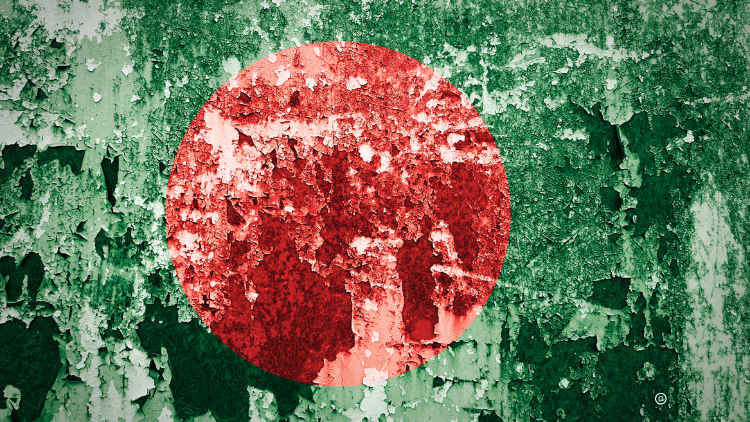Overview of Events
Bangladesh July 2024: A Month of Protests, Frustrations, and Expectations

Bangladesh Flag
© By Techin24 from Getty Images via Canva ProFor about two weeks in July 2024, Dhaka, Bangladesh's capital, witnessed unprecedented protests and violent clashes between students and law enforcement. The pro-government student wing of the governing Awami League, known as the Bangladesh Chattra League, used brutal force on the protestors, worsening widespread citizen anger. The government imposed a complete communications blackout, shutting down the internet and restricting phone services. Peaceful protests on university campuses quickly escalated into nationwide unrest. Media reports indicate that at least 150 people were killed, thousands were injured, and significant property damage occurred, including the torching of several government buildings and vehicles.
Reasons Behind the Protests
In early July 2024, students at Dhaka University in Bangladesh initiated a protest against the job quota system, which favors the descendants of the 1971 liberation war fighters. Many students view this as unfair and obsolete. A third of public sector jobs are reserved for the relatives of veterans from the country’s war for independence from Pakistan in 1971.
The quota issue is just the tip of the iceberg of economic and political discontent. Although Bangladesh has one of the fastest-growing economies in the world, this growth has not translated into sufficient jobs for university graduates. The government estimates that around 18 million young Bangladeshis are unemployed, with university graduates affected disproportionately.
In their 2023 Corruption Perception Index, Transparency International ranks Bangladesh 149th out of 180 countries worldwide. In public perception corruption, nepotism, and lack of accountability have not improved within the 15 years tenure of the current government. In recent months, social media in Bangladesh has been dominated by discussions about corruption allegations against top government officials, including a former army chief, ex-police chief, senior tax officers, and government recruitment officials. Ordinary people are struggling with the escalating cost of living and double-digit food inflation. Urban lower- and middle-income families are experiencing greater economic hardship since the Covid-19 pandemic.
Additionally, it is reported that the space for democratic activity in Bangladesh has shrunk over the past 15 years. The main opposition party, Bangladesh Nationalist Party (BNP), boycotted the elections, alleging the lack of free and fair elections.
In summary, the disgruntlement over job quota inequity ignited a student protest movement, translating into full-blown civilian participation in a brief but violent uprising.
What Next?
The Supreme Court passed a ruling addressing the students’ concern that the job quotas favoring liberation war veterans’ descendants cannot exceed 5 percent, reduced from 30 percent. While this was necessary to quell the protests, it is insufficient for the current government to gain the confidence and support of its citizens.
Broadly speaking, the government has two options. The first is to blame the opposition political parties and vested interests for inciting the brief nationwide mass movement, becoming more despotic and worsening civil and human rights. The second option is to take the protest movement as a wake-up call for political and economic reform. This would include serious efforts towards improving governance, greater adherence to the rule of law